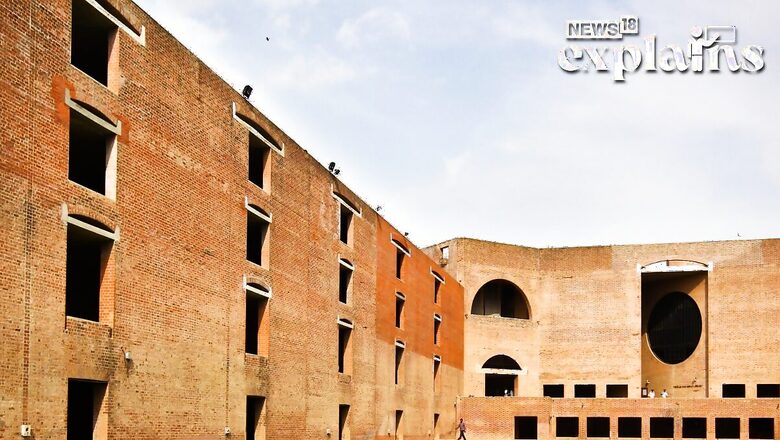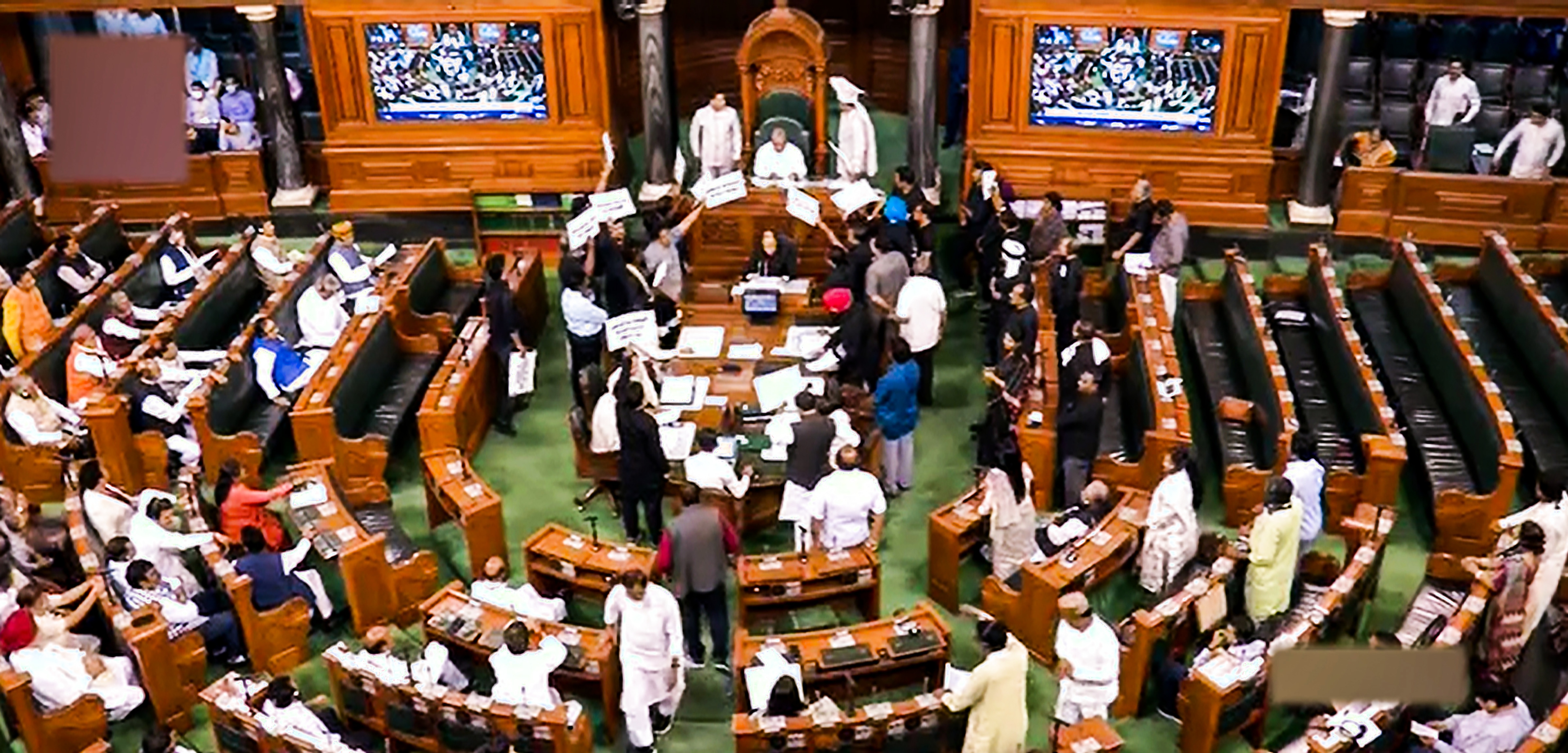
views
The Indian Institutes of Management (Amendment) Bill 2023 was introduced in the Lok Sabha on July 28 amid disruptions in the House over Manipur violence.
The Bill comes six years after the IIM Act, 2017 was made and implemented from January 31, 2018, declaring the 20 IIMs across the country as “institutions of national importance” and conferring them with greater autonomy in both administration and academic functioning.
However, the Centre has now gone into the reverse gear. It has proposed a draft bill to amend the 2017 Act seeking to limit the autonomy the premium B-schools enjoyed so far. In what comes across as a step back, until 2017, it was, in fact, the government who would appoint the directors, chairpersons and board members to IIMs.

Tabled amid disruptions, the bill will now come up for consideration and passage this week.
What the draft bill proposes?
The draft bill introduced in the Parliament during the ongoing monsoon session by union education minister Dharmendra Pradhan seeks to appoint the President of India as the “Visitor” to the IIMs.
The “Visitor” will have powers to conduct an audit of their functioning, order inquiries as well as appoint or remove its chairpersons of the board of governors and directors — a move that could limit the autonomy of the institutes.
“The Visitor may appoint one or more persons to review the work and progress of any institute and to hold inquiries into the affairs thereof and to report thereon in such manner as the Visitor may direct,” the draft bill stated.

It also proposes that the search-cum-selection panel for the director’s appointment will have a Visitor’s nominee. “…the services of the director may be terminated by the Visitor, in such a manner as may be prescribed,” the draft read.
According to the bill, the “Visitor” can also appoint the chairperson of the coordination forums of each IIMs. These forums are set up for coordination among all institutes on achieving common policy objectives.
In India, the President is the Visitor to all central universities as well as IITs and is empowered to appoint its vice-chancellors and directors.
What are the existing rules under IIM Act, 2017?
Currently, IIMs are allowed greater autonomy to be run by its board of governors, with each institute having 19 members including only one representative each from central and state governments. The board has the power to take policy decisions related to administration and working of the institutes. The chairperson of the board of governors is appointed by the board itself. The members could be eminent persons distinguished in the field of education, science, industry, technology and management, among others.
The board of governors is the highest decision-making body of each IIM with the power to appoint search-cum-selection panels for appointments of new directors as well as decide their pay (as per rules laid down by the Centre), create posts, establish departments, approve annual budgets and determine fees.
Scenario before the 2017 Act
Before 2017, the chairpersons to the board of governors and the directors for each of the IIMs were appointed by the Centre just as in the case of IITs or AIIMS.
Also, the IIMs, till 2017, would only grant diploma for postgraduate courses and not degrees. The IIM Act gave the institutions degree-granting power.
What is the tussle between Centre and IIMs?
The top management schools ran into conflict with the Centre over awarding one-year executive MBA degrees in early 2020 as the latter red-flagged the granting of such a degree citing the University Grants Commission (UGC) rules, according to which, there is no provision to grant a degree for a course length of a year.
Following this, several meetings were held between the IIM heads and the government to discuss the flashpoint, but the institutes continued to grant one-year degrees despite the government’s reservations on the same. It is usually foreign universities following the ‘4+1’ education model where upon a four-year undergraduate course, a one-year Master’s degree is offered for many programmes.
Another instance where the two were in disagreement was last year when IIM-Rohtak reappointed its director for the second time, despite a controversy over the official’s academic credentials while the education ministry had been opposing it.
Last year, the education ministry had informed the institutes about a new procedure being worked out to form search-cum-selection committees for the appointment of chairpersons. The board of governors of the institutes were asked to extend the tenure of the existing chairpersons till the new procedure comes into place. This, however, did not go down well with the administration of the IIMs with several board members describing it as “interference” in their matters.
What faculty members say?
Faculty members have expressed concerns on the possible dilution of the autonomy of the IIMs under the proposed bill while also saying that the institutes must remain accountable to public scrutiny without infringing on its freedom. Also, while the first-generation IIMs such as Ahmedabad, Calcutta, Bangalore and Indore, among others have been self-sustaining, the other newer IIMs are still largely dependent on government-funding for their functioning.
Prof Trilochan Sastry of IIM-Bangalore, said that the draft bill proposes that the institutes’ chairperson and director will be appointed by the government, which used to be the case even earlier.
“However, I do feel that if we have to go global, we must look at the best practices being followed by the top universities internationally. Be it Cambridge, Oxford or Berkeley, all these universities though being partially or in some way funded by the government, still exercise a greater degree of autonomy,” Sastry said.
“They have maintained their standards of excellence over centuries due to a host of factors, of which having a great degree of autonomy to run the institutions has been the most important. We can, of course, improve on these best practices,” he added.


















Comments
0 comment